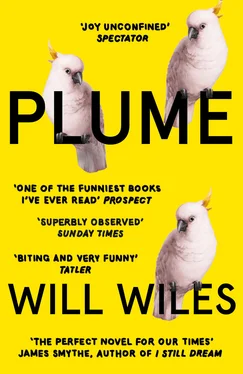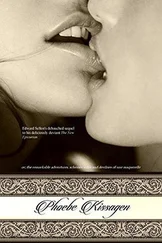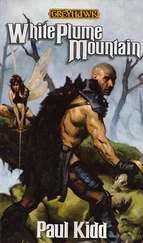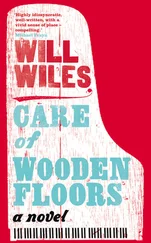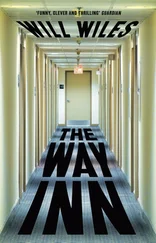Once I did, sure. ‘Sure.’
‘Just stick ’em on a page and give them to me. Say by Friday? Then we can get planning for the future.’
‘Sure.’
‘Great!’ And she hurried away cheerfully, clipboard swinging like a scythe.
The photograph of the plume on my computer screen disappeared, replaced by the writhing rainbow tentacles of my screensaver. But I didn’t need photographs to see it. I could just raise my eyes to the window and look at the real thing: a tight black column at the bottom of the frame, an ominous addition to the dusty publishing trophies lined up on the sill; filling the sky at the top of the frame, choking out the light.
The tasks I had been set were impossible. Not for the others, but impossible for me. I knew I would not be able to do them. I knew that I was going to be fired. I knew the how , and I knew the when . And I already knew the why .
TWO Contents Cover Title Page PLUME Will Wiles Copyright Dedication Epigraph Chapter One Chapter Two Chapter Three Chapter Four Chapter Five Chapter Six Chapter Seven Chapter Eight Chapter Nine Chapter Ten Chapter Eleven Chapter Twelve Acknowledgements About the Author Also by Will Wiles About the Publisher
Latenesses, absences, missed deadlines, empty pages. I knew how it looked. It looked idle. It looked like the work – the lack of work – of a man who no longer cared. No passengers, Eddie said. We can’t carry anyone. He wasn’t the sort of boss to crack the whip unless he had to. No, his methods were persuasion and consensus. But I could see the change in him. The moment was coming. The moment when I could no longer be excused, when the accumulating evidence toppled into a landslide that would sweep me away.
Facts, accumulating. Polly’s scrupulous notes, the implacable grid of the flatplan. Gather enough facts and you have the truth. But an interviewer, a profile journalist like myself, knows different. There are, for a start, too many facts. Far too many. Punch a name with even modest achievements into a search engine and back come hundreds, thousands, of relevant results. Search someone like Oliver Pierce or Francis Quin – someone who operated online, someone with a following, an active fan base – and there are tens of thousands if not more.
Add to that what you gather yourself. People have no idea how much they say in the course of a normal conversation. Talk to someone for an hour and the transcript can approach 5,000 words. Trim away all the worthless ‘yeahs’ and ‘umms’ and ‘I thinks’, cut all the bits where they’re ordering a drink or asking their PR how much time they have left, and unless they are the worst kind of drone celeb you will still have far more quotable material than can be squeezed into the 2–3,000 words you have been given to write.
So you select. You edit. And here the interview stops being photography and becomes impressionist painting. Ten quotes that make the subject look generous, warm and inspiring can be found in the transcript. The same transcript can yield ten quotes that make them sound weary, bitter and self-centred. The person remains the same, what they said remains the same, but they are seen through a series of funhouse mirrors, appearing first hypertrophied, then stunted, then undulating …
A correction. What they said does not remain the same, not quite. The interviewer does not merely prune, then select. They edit. People talk nonsense. They speak in fragments and non-sequiturs, they repeat themselves and omit. Sometimes they skip verbs, sometimes nouns. And by ‘they’ I mean we . We are all, always, skirting total aphasia, total nonsense. But we don’t mind, we don’t even hear it, because our inner editors smooth it all away in the hearing. The real evolutionary breakthrough was not the ability to speak – it was the ability to understand.
Record the unedited spew that is natural human speech and write it down word for word, and the result is unprintable. The subject would be furious if you put these words – their exact words – in their mouth. Rightly so. They’d sound like a babbling fool. The work needed to correct this impression – to make people sound as they believe they sound – isn’t slight. It goes far beyond cutting out the ‘umms’ and ‘ahhs’. It can entail wholesale reorganisation and rephrasing of what was said. In other words – in other words! – the writer must extract the ore of what was meant from the slag of what was spoken. Done correctly, the subject won’t believe a word has been changed.
Even after explaining these difficulties, admitting the fundamental elasticity of the truth, the professional profile journalist will still insist that truth is the very soul of their work. Their profile, they will claim, is a fair portrayal, or an authentic depiction of an encounter. But I was beginning to believe that a true portrayal of another person might not be possible – not because the truth was impossible to portray, but because there might not be any truth to expose. It might be that every man and woman is a fractal Janus, infinitely involuted, showing at least two faces at every level of magnification. It might be that every human encounter is a cryptogram impervious to codebreakers.
The data Polly had collected gave the impression of idleness. If she was in a position to fill in the widening gaps in my day, that impression would only grow stronger. Perhaps she had already guessed the truth. I have considered telling the truth. I have wondered what that would sound like, what I would say, and where I would begin. But even a straightforward statement of facts is not the truth, not the whole truth.
I am not idle. I work hard. I start early, I work through lunch, I work in the evening, I work late into the night. I work until I drop. When I am kept away from work, by the Monday morning meeting or by the quiet drink I enjoyed with Mohit that same evening, work was always on my mind.
Idle, no. Polly would not see, but it is there to see, out on the streets. You are outside a pub, queueing for a cashpoint, waiting for a bus. They approach and ask for money. Maybe they have a story they tell. Look at them – the stance, the gait, the eyes. Abject, yes. But not idle. No languor, no sloth. They are busy. They are on a deadline. They are working. Addiction is work, all-consuming, urgent work. And unlike my post at the magazine, the job security is total. Addiction will never fire me. It will never let me go.
It was true that I was often late for work. But I overslept less than you might expect – I was rarely given the chance, rising promptly, at 7 a.m., when the drilling started. Next door was renovating their house. Renovate: to make new again. They were stripping that word back to its roots just as they were rebuilding their house down to its foundations. Deep into the London clay they dug, scraping out precious extra inches of floor area and headroom. They were in my head-room too. Their busy pneumatic drills were working perhaps only feet – perhaps only inches – from where my head rested on an under-washed pillowcase. They might as well have been drilling inside my skull.
I no longer got hangovers. I was never sober enough. So perhaps the universe supplied the drilling as a substitute. All the oxygen was gone from the room already. There was air, but it could not nourish or sustain. And it was thick with dust, created and stirred up by the building work. Dark grey was encroaching in the corners of the window panes, smooth surfaces crackled beneath my fingertips. My nose was blocked.
Shower first, then breakfast, I thought. But the Need disagreed. You’ll have time for that later, it lied. Me first. Still wearing no more than the T-shirt and boxers I had slept in, I went to the fridge, took out a can of Stella, cracked it, and took a swig.
Читать дальше
